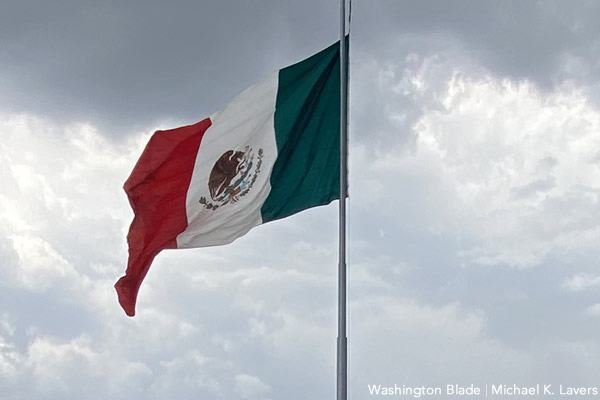There have been mixed reactions from South Africa’s LGBTQ community after a popular wedding venue east of Cape Town announced it will no longer host weddings.
The Beloftebos farm, which Coia and Andreis de Villiers own, is 90 miles east of Cape Town and hosts a number of events.
It first came under the spotlight in 2017 when Alexandra Thorne and her partner Alex Lu approached Coia de Villiers in the hope of hosting a wedding, but was told the venue does not host same-sex marriages. Another same-sex couple, Megan Watling and Sasha-Lee Heekes, in January 2020 had a similar experience and approached the South Africa Human Rights Commission (SAHRC) which brought the de Villiers before the Equality Court for discrimination against the LGBTQ community.
The closure of the wedding venue has since seen Ruth Maseko, convener of the Triangle Project, an LGBTQ rights group, labeling the move as a total divergence from the LGBTQ community.
“Firstly, religious convections in the Bible have been used to appeal many forms of oppression including oppression of women, slavery amongst others,” said Maseko. “The sadness is that religion is still a point of exclusion and intolerance instead of being loving, affirming and inclusive. The case of the Beloftebos; owners to no longer host weddings at all than to allow people who do not identify exactly as they do is very repugnant. I wonder at what point do we become humans to know and understand the one who created you is the one who created us, members of the LGBTQIA+ (community)?”
“In this country, we have a constitution and as LGBTQIA+ people, we are protected by the constitution in that people may not discriminate against us on the grounds of our sexual orientation,” lamented Ruth. “If a wedding venue is open to the public, you cannot say we are open to the public except for LGBTQIA+ people or we are open to the public except black people, it is not constitutional.”
Michael Swain, director of Freedom of Religion South Africa, however, said the de Villiers had cited that they fully respect and recognize the constitutional rights of the LGBTQ community.
“The issue for the de Villiers family has always been about their sincere and deeply held convictions on the sacrament of marriage,” said Swain. “It has never been about the sexual orientation of any person and they have at every opportunity made it crystal clear that they fully respect and recognize the constitutional rights of the LGBTQIA+ community.”
“They have therefore asked the SAHRC to accept, without having to agree with them, that their bona fide and intensely-held world view is that marriage is a sacrament between a man and a woman,” added Swain. “Further, that their views and beliefs regarding marriage are for considered and nuanced reasons which in turn are fundamental to their relationship with God. This relationship is central to how they live their lives and it guides all their activities, including their decisions to diversify the use of their farm.”
Swain said “the decision of the de Villiers family to no longer make the wedding venue on their property generally available to the public was not part of their proposal to the SAHRC to find a resolution to this matter.”
“Rather, it was the culmination of a process of prayer and consideration over a number of years. This decision was accelerated by the severe impact of the COVID-19 lockdown regulations that effectively shut down the wedding industry,” added Swain. “However, the Beloftebos farm will continue to be used for a variety of Christian ministry (sic) and other events. By way of example, and in line with their decision, they have recently hosted a conference covering the topic of Biblical engagement with secular society.”
Furthermore, Swain said the constitution is very clear on the issue of freedom.
“To date, there has been no legal precedent to force a wedding venue to host and celebrate a same sex marriage,” said Swain. “However, if someone can be forced to participate in and celebrate events that violate their conscience, religion and belief, then every supplier of goods and services in South Africa may be forced to perform work or to provide services that they fundamentally disagree with.”
“This case is therefore about freedom, freedom for all of us to live in an open and democratic society where people are free to live their lives as they choose, in mutual respect for the dignity and sincerely held beliefs of one another,” added Swain. “Our constitution does not require everyone to believe the same and it should not punish people for holding divergent beliefs and opinions.”
The de Villiers have since written this week to the SAHRC in an attempt to amicably resolve this matter, which has been ongoing for more than two years.
Daniel Itai is the Washington Blade’s Africa Correspondent.

